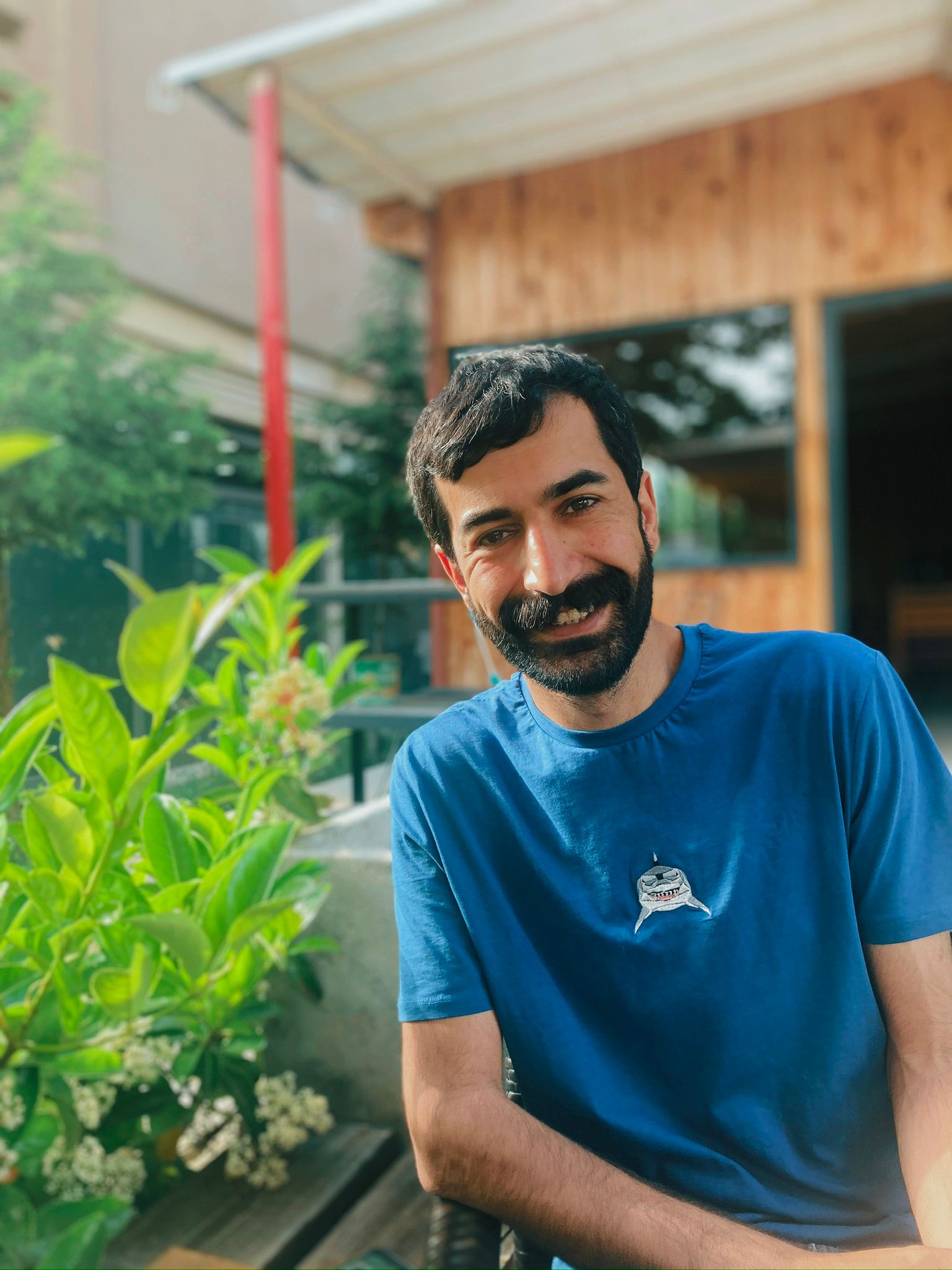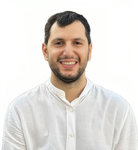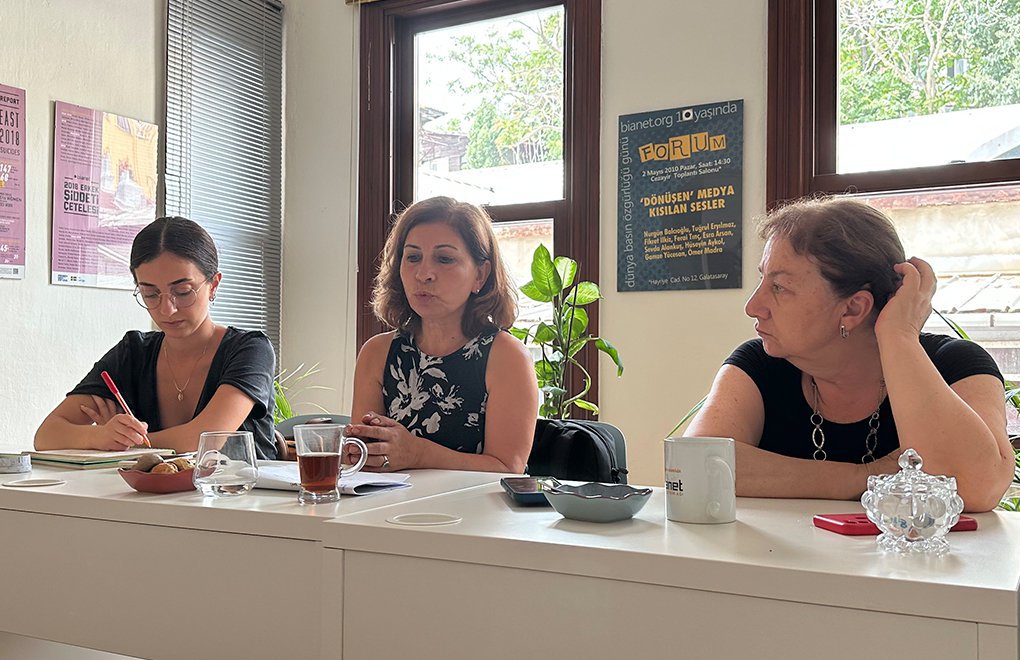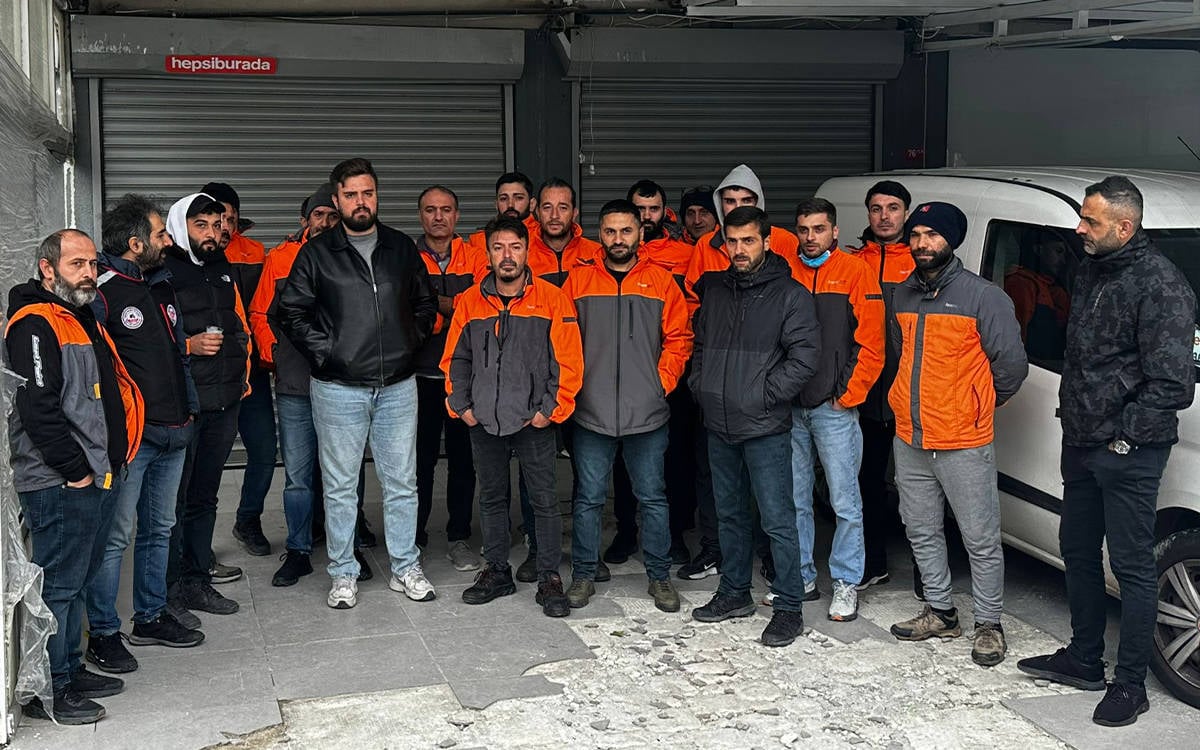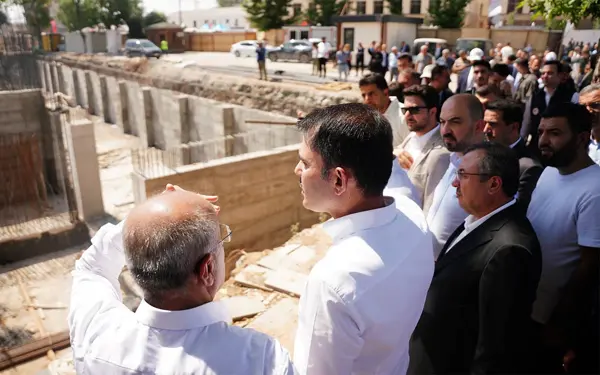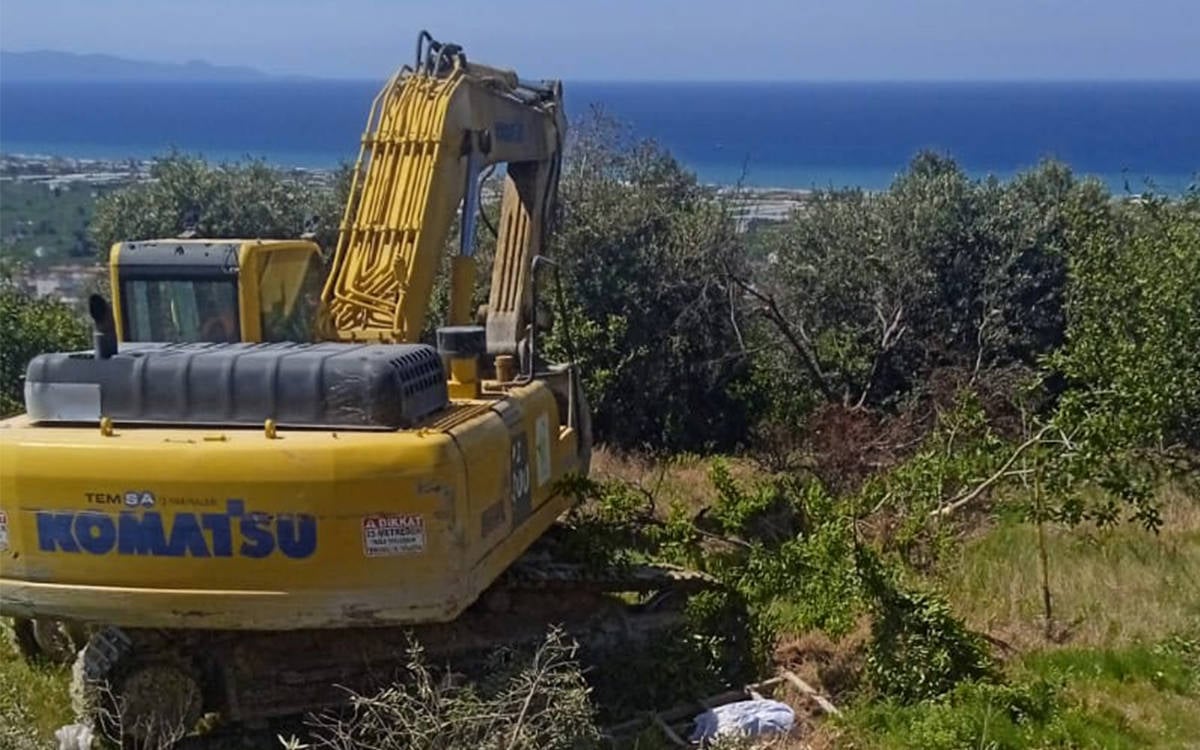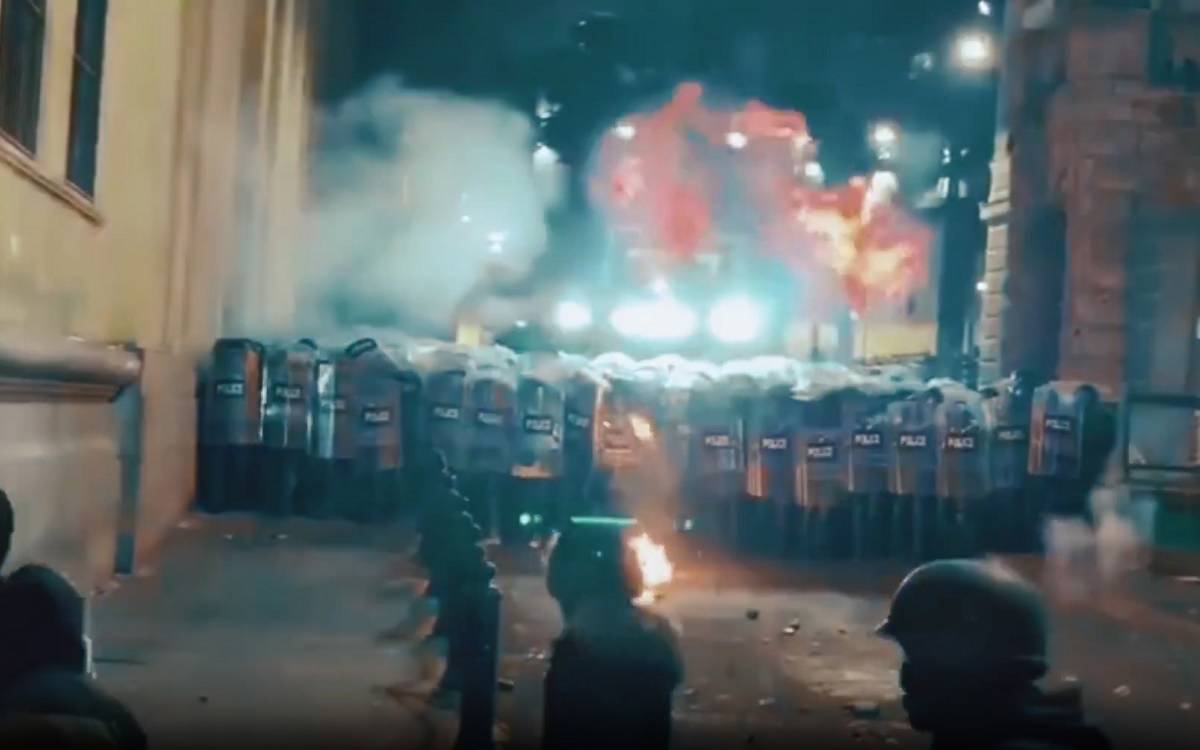Click to read the article in Turkish
Continuing its efforts to strengthen civil society, establish regular communication channels, and enhance collaborative opportunities, the IPS Communication Foundation/bianet held its sixth round of discussions with NGOs working in the fields of human rights, gender equality, women, LGBTI+, refugees, ecology, disability rights, law, and media. This time, the meeting was held with the Human Rights Solidarity Network (İHSDA).
During the meeting at the BİA Workshop, bianet's Editor-in-Chief Murat İnceoğlu, Managing Editor Vecih Cuzdan, Freedom of Expression Consultant Erol Önderoğlu, Sinem Aydınlı, and Editor Nedim Türfent were present.
Those representing the İHSDA were Ümit Efe, Board Member of the Human Rights Foundation of Turkey (TİHV/HRFT); Gülseren Yoleri, Chair of the Human Rights Association (İHD) İstanbul Branch; and Esin Epli, Project Assistant at the Truth Justice Memory Center.
The İHSDA is a collective formed by human rights organizations that came together on February 27, 2019, recognizing the necessity of organized efforts to protect human rights defenders.
"A prohibitive period"
Highlighting the significance of the network in the face of restrictive challenges, Ümit Efe said, "As you know, from 2015 until 2019, the space for civil society was narrowed down and even encroached upon. All institutional structures began to undergo transformation.
"It was a prohibitive period where individuals and institutions were stripped of their role as rights holders. When you started seeking justice, you were labeled as a terrorist, PKK member, or FETÖ supporter, in a process aimed at complete suppression."
Efe noted that diverse organizations within the human rights spectrum, ranging from women's groups to LGBTI+ advocates, environmental activists, and refugee rights advocates, joined forces amid an environment rife with systematic marginalization and hate crimes.
"Intense pressure"
Underscoring the crucial role of the network in resisting "restrictive attacks," Efe said, "The network enables us to stand on our own arguments, intervene effectively, and persistently advocate our cause."
He further elaborated on the activities of the network components, saying, "We strive to reach all those who face rights violations or torture in the country. It's truly challenging to engage in human rights struggles in the remote corners of Anatolia and other distant regions. It's difficult to make their voices heard. Not only are they isolated, but their families also face intense pressure."
Importance of the media
Acknowledging the importance of the press in human rights advocacy, Efe expressed his satisfaction with bianet's stance: "We are discussing how we can strengthen human rights advocacy in a broader sense. Lately, even journalists have shown decreased interest in human rights-related issues. Journalists have a critical role to play."
"Torture is everywhere"
Efe emphasized the ongoing prevalence of torture, stating, "Torture is extending to the streets; everywhere has turned into a place of torture. Violence is being normalized, creating a state of desensitization.
"The fight against impunity requires raising awareness and consciousness. Reminding people that reverse handcuffing is a form of torture, and that torture is absolutely prohibited, is crucial. This is something that the media often fails to do. When it's said that 'reverse handcuffs were put on Saturday Mothers,' it should not just be news. Even [the police] surrounding the mothers is a form of torture. Additionally, stories of detentions and obstructions should not overshadow the stories of those who have disappeared. The aim is to keep the memory alive, to seek justice."
Pursuit of justice
Gülseren Yoleri, head of the İHD Istanbul Branch, pointed out that the obstacles, detentions, and torture endured by the Saturday Mothers/People in spite of the Constitutional Court's decision have begun to be seen as "routine."
She contested the notion of "routine" when discussing the scope of the bans, highlighting that sometimes the reasons for these bans nullify Constitutional Court decisions, while at other times they are based on reasons such as a football match. Yoleri stressed that even though participation continues to grow and diversify, deeming these acts as "routine" devalues the actions and the pursuit of justice.
Av. Yoleri underlined that their actions in Galatasaray Square have gained unprecedented legitimacy and legal standing: "Yet, we still encounter bans. The unlawfulness and disregard for justice by the government must be subject to discussion."
Journalists and lawyers
Esin Epli, Project Assistant at the Truth Justice Memory Center, noted that her team observes and documents the actions of four human rights organizations each week, compiling comprehensive reports.
"Reports are prepared where we can observe every detail, from the inclusion of KEM [Dog Training Center] dogs to the field for legal submissions, to weather conditions. These reports will also serve as references for making applications to international mechanisms.
"During demonstrations, journalists and lawyers are also subjected to police intervention. However, they refrain from taking action that would detach them from the context of the action."
The Human Rights Solidarity Network Components: 17 May Association, Initiative Against Thought Crimes, Association for Monitoring Equal Rights, Truth, Justice, and Memory Center, Initiative for Rights, Human Rights Association Istanbul Branch, Women's Time Association, Women's Human Rights - New Solutions Association, Kaos GL, Lambdaistanbul LGBTI+ Solidarity Association, Media and Law Studies Association, Lawyers for Freedom Association, P24 Independent Journalism Association, Research Institute on Turkey, Social Policy Gender Identity and Sexual Orientation Studies Association, Society and Law Research Foundation, Turkey Human Rights Support Project, Human Rights Foundation of Turkey, Unikuir Association, Life Memory Freedom Association, Citizenship Association
(NT/VC/VK)




